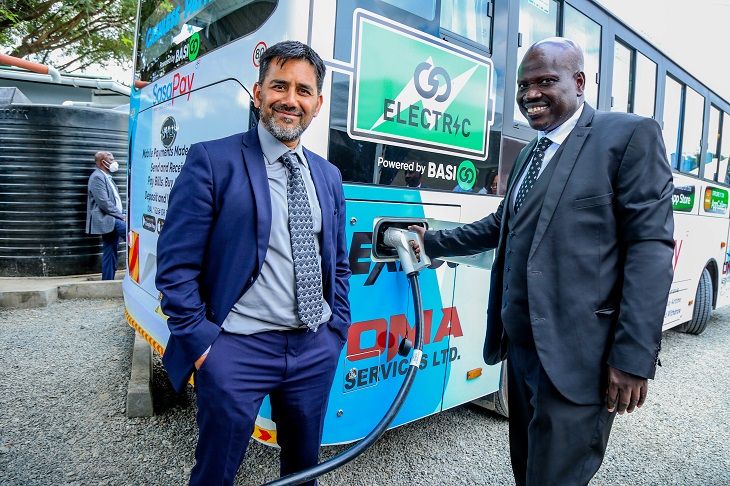Place your adverts here on InfoDig @ low rates; banner ads, sponsored links and guest articles etc. Contact us
BasiGo, a Kenya-based electric bus startup founded in 2021, has closed a $24 million Series A equity round and an additional $17.5 million in debt funding. The round was led by Africa50, a pan-African infrastructure investor, the British International Investment (BII), and the U.S. Development Finance Corporation (DFC).
Other investors in the equity round included Novastar Ventures, CFAO Kenya, Mobility54, and SBI Investments. The loan includes a $10 million facility from DFC to support BasiGo’s operations in Kenya and a $7.5 million facility from BII to help BasiGo expand its electric bus services in Rwanda.
BasiGo was launched in Kenya in 2021 by Jonathan Green and Jit Bhattacharya after raising $1 million in pre-seed funding to manufacture eclectic buses in Kenya and put those buses on the road in Nairobi as commuter vehicles, popularly referred to as matatu. As of March 2024, BasiGo electric buses had transported over 4 million passengers, reducing greenhouse gas emissions by 1,175 tonnes.
The funding comes seven months after the Kenyan government launched a national e-mobility draft policy to promote the local manufacturing and assembly of electric vehicles.
BasiGo will use the funding to grow its fleet of electric buses from 119 to 1,000 in Kenya and Rwanda over the next three years to compete with Roam Motors, which raised $24 million in February 2024.
“With BII’s support to expand our e-bus model in Rwanda, we are ready to deliver hundreds of modern, emissions-free electric buses across East Africa,” said Jit Bhattacharya, CEO of BasiGo.
The funding will also help scale up its e-bus assembly line and expand its pay-as-you-go model—a financing product that allows customers to lease BasiGo buses to cut high upfront costs—to new bus types. Its E9 Kubwa model can cost up to KES 7.5 million ($58,000). Ordinary buses used for mass transit in the cities usually cost a little over KES 5 million ($37,000).
 BasiGo CEO Jit Bhattacharya and Dr. (Eng.) Joseph Siror, Kenya Power Managing Director and Chief Executive
BasiGo CEO Jit Bhattacharya and Dr. (Eng.) Joseph Siror, Kenya Power Managing Director and Chief Executive BasiGo’s strategy is to tap into Nairobi’s Matatu culture, where small buses run by Savings and Credit Co-operatives (SACCOs) move millions daily. BasiGo has partnered with SACCOs, including Super Metro and Citi Shuttle, to introduce their buses into Kenyan roads.
In 2022, it raised $4.3 million in a seed round, followed by $6.6 million later that year and $5 million in debt from BII. In March 2023, BasiGo raised $3 million in equity from CFAO and its venture capital arm, Mobility54.

 2 hours ago
27
2 hours ago
27




)









 English (US) ·
English (US) ·